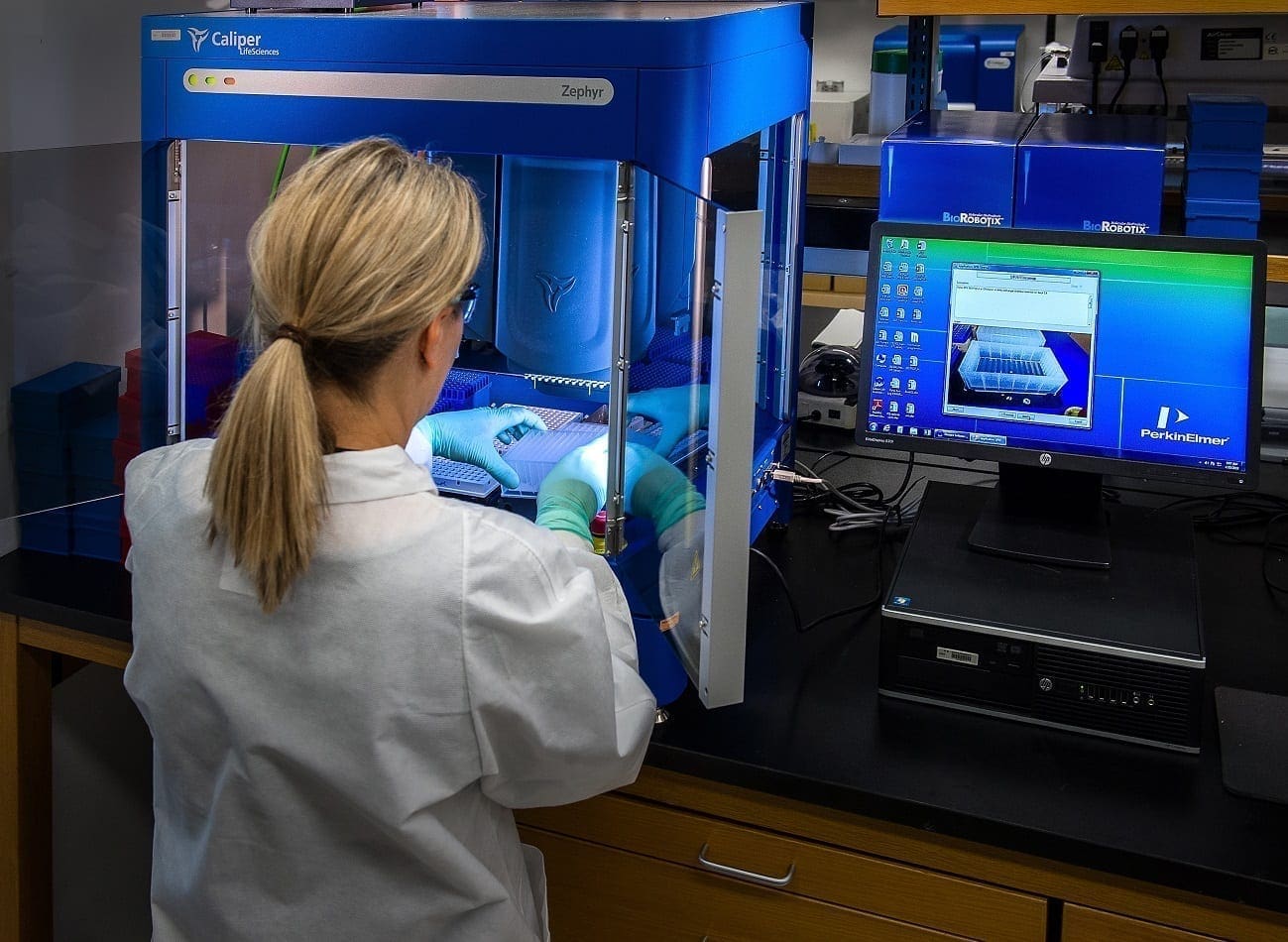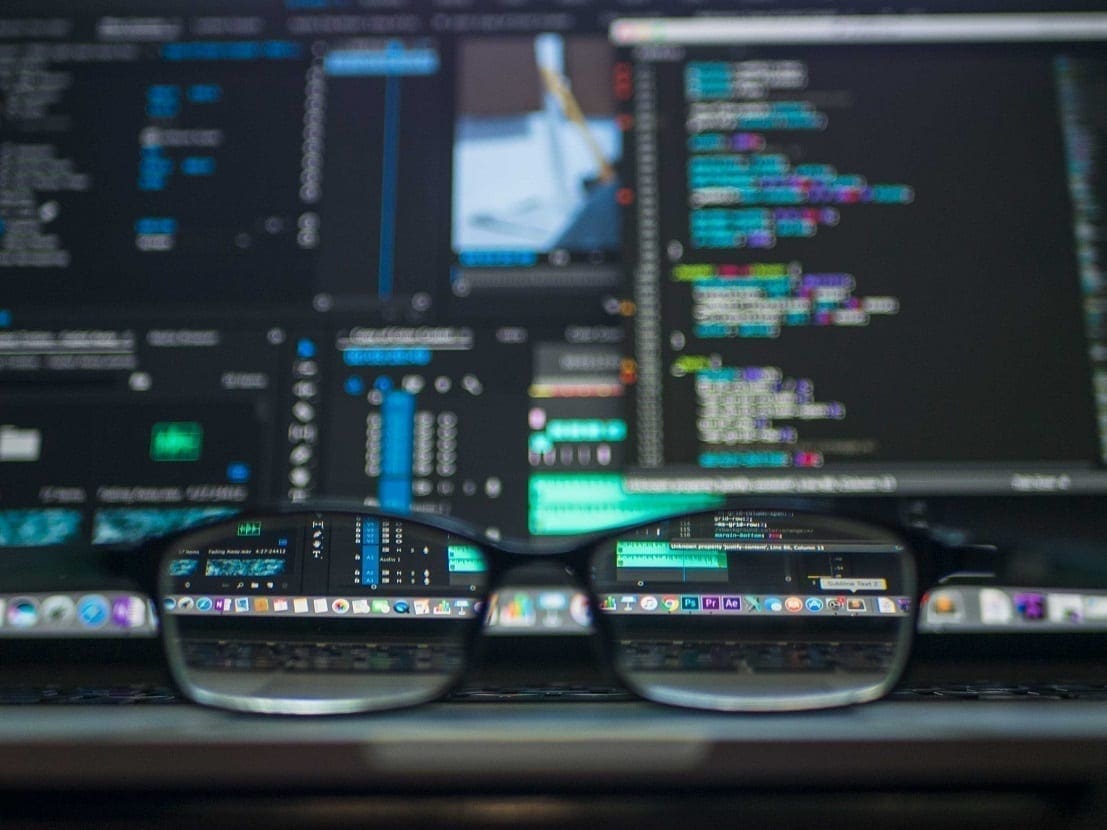Joaquin Phoenix’s performance in 2013’s “Her” is commendable. “Time” described it as “showing us what it’s like when a mourning heart comes alive.” Despite its brilliance, the film portrays a grossly off-putting future for the artificial intelligence industry. 2020 has demonstrated this in the way healthcare is currently delivered to the consumer. Perhaps no industry has had a need for adaptation and technological innovation more than healthcare, especially through artificial intelligence.
Some may ponder, What does the relationship between artificial intelligence and medicine entail? The scientific definition is; the use of computer algorithms to emulate human cognition. In layman’s terms, a large amount of medical data and knowledge accumulated over time is being streamlined to supplement or replicate practitioners’ thoughts on a variety of medical decisions.
There has been no shortage of successful examples of artificial intelligence use in 2020. Dr. Alicia Mohr, Division Chief of Acute Care Surgery at the University of Florida’s College of Medicine, illustrated its application to the COVID-19 pandemic. “Dozens of hospitals across the country are using machine learning, a type of artificial intelligence (AI), to predict which COVID-19 patients will require the intensive care unit or a long-term ventilator.” Evidently, this trend’s commonality nowadays is unprecedented; an MIT report stated 85 percent of Americans utilize artificial intelligence in their daily life. This technology is the basis of large data information processing and can be found in something as common as the Apple Watch. Whether the world is ready for it or not, artificial intelligence is omnipresent in society.
Though artificial intelligence sparked concerns (and even outrage) when it was first implemented in healthcare during the 1960s, it has slowly become more accepted of late. Drugs are now being entirely researched, designed and brought to market via this new wave. Most impressively, the first human trials for a drug created entirely by this technology treats Obsessive-Compulsive Disorder and was produced in less than 12 months. This astounding accomplishment bests the average time of four and a half years for drug research and creation. This new frontier in medicine shows potential in presenting world-changing opportunities for healthcare.

Expectedly, many corporations have invested in artificial intelligence. American healthcare companies, who are often several steps ahead of the latest scientific trends, spent over $2 billion on this technology in 2019. What’s more, the pool of data that patients contribute to this science has increased exponentially. The information base of artificial intelligence is projected to double every two months throughout 2020.
Cultivating Clarity
Artificial intelligence. It’s reasonable to associate this term with dark premonitions. The wording itself includes a term that is defined as a copy of something natural. However, the phrase’s relation to the healthcare industry couldn’t contradict this school of thought more. The movement has unified practitioners and patients through deducing the most informed decisions, in addition to connecting these groups where previously impossible.
To be clear, many predict that your future doctor’s appointments will not involve full interactions with a menacing, robotic presence. Rather, this evolution thus far has been most prominent in acting as a supplemental tool for physicians. What is known as “augmented intelligence” is most applicable to this philosophy. This acknowledges that artificial intelligence should be a tool to enhance, not replace, the decision-making process.
It may surprise some that this trend has connected people throughout the COVID-19 pandemic. During a time when consumers have physically grown apart, artificial intelligence has acted as a conduit. The healthcare industry in particular has reaped the benefits of this. Telehealth has undoubtedly been one of the most crucial adaptations throughout this trying time. Artificial intelligence has been at the forefront of this shift. It’s played the role of facilitator effectively through new communication tools such as teleradiology and teledermatology.
Even in the midst of lockdown orders, artificial intelligence has connected patients to doctors who are best suited to treat specific, pertinent symptoms. Through instances like these, physicians and patients appear to be matched at a more efficient and accurate rate than ever.
Privacy Problems
While healthcare workers have valiantly served in hospitals during COVID-19, a cyber-war rages on. It is no secret that hackers have been a pesky threat to patient information and the artificial intelligence revolution. However, there is hope that indicates cybersecurity professionals will prevail.
During a time when many healthcare professionals have gone above and beyond, the cybersecurity industry has touted similar feel-good stories. Cyber Volunteers 19, for instance, has made many feel more secure already. This organization has called upon cybersecurity professionals to volunteer in helping healthcare companies protect patients’ personal information. Marc Rogers, an esteemed cybersecurity professional who holds titles such as Vice President and Head of SEC Ops, had many thoughts about organizations like these. In an interview with CSO Online when strict stay-at-home orders were in place, he said, “There is a really strong appetite for doing good in the community. If we can’t go out and have a beer, the next best thing is opening our laptop.”

Photo courtesy of the CDC
However, beyond volunteer aid, protective technologies from other arenas continue to evolve. Ben-Gurion University of the Negev, for instance, has developed security to protect against potential attacks on medical imaging devices. Johns Hopkins University has also taken successful steps in developing software to prevent such attacks. Supplementing cybersecurity professionals with semi-automation appears to be the trend that fosters the most protection.
All things considered, providing one’s personal information to healthcare companies is and always will be a risk. There’s a clear reason why many respected doctors consistently bring up such concerns on this subject. Putting one’s trust in not only healthcare companies but the cybersecurity industry at large, to formulate new protection is understandably difficult. Weighing the risks and rewards is something one must do in many facets of healthcare. Ultimately, it has to be accepted and respected that not all will buy into this industry change.
The Big Picture
Despite the difficulty in imagining this trend becoming a mainstay, the effect artificial intelligence has had on the country is undeniable. The unfortunate circumstances that COVID-19 brought upon American citizens were in fact slightly mitigated by the use of artificial intelligence.
The greater New York City area quickly became the epicenter of the pandemic in late-March. With imminent fears of an overrun hospital system, predictive technologies became crucial. The Mount Sinai Health System relied upon artificial intelligence to generate models that predict when patients would be discharged from the hospital. Dr. Mohr has also been at the heart of pandemic preparations, saying that “these are unprecedented times and you need to incorporate the data and then do the best you can, remembering that each patient is unique.” In the long run, this medical advancement allowed proper preparations to be made throughout the onset of the virus, thus removing significant strain from ICUs.
In what is perhaps the most well-known recent use of such technology, artificial intelligence has become an ambassador for the advent of telehealth. Aside from bringing people together, one may be surprised to read about the extent to which doctors can assess a patient’s health remotely. For instance, an attachment to the iPhone has been found to be capable of performing ultrasounds.

Healthcare Through Artificial Intelligence
Computerized Behavioral Therapies
Therapies classified by the FDA have also been utilized via telehealth. Prescription-necessary, computerized behavioral therapies have conveniently helped patients who are diagnosed with a psychiatric disorder. While some may believe the pandemic halted all non-essential doctor visits, artificial intelligence has now made them more convenient and practicable.
This trend can also allow the world to better prepare for future disease outbreaks. BlueDot and Boston Children’s Hospital, for example, alerted professionals about an odd uptick in pneumonia cases near the end of 2019. Of course, the world would become very familiar with the lung leveling coronavirus soon after. These predictive technologies have proven successful and will logically become only more accurate and relied upon.
It’s clear throughout many of these examples that collaboration between the machine and the medical profession is necessary. This theme perfectly sums up what the world should ask for from artificial intelligence in the healthcare industry. Hardly a replacement, but rather, a tool that will broaden the capabilities of the human decision-making process. Healthcare through artificial intelligence.
About the Author/s
Christian Milcos is currently pursuing a degree in Communications at Marist College. After serving as Editor-In-Chief of his high school's newspaper for two years, he has since continued writing for a variety of blogs. His content has been featured on Fansided, Yahoo Sports and Bleacher Report.